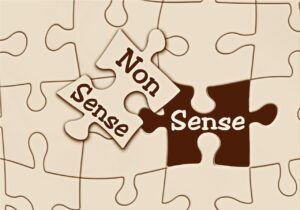INTRODUCTION
The Legal issue concerns a dispute between Mr. A, the organizer of a show and Mr. B, a famous comedian regarding the posting of a video of Mr. B’s performance on Mr. A’s YouTube channel. Mr. A posted the video without obtaining Mr. B’s consent, asserting that since Mr. B had been paid an appearance fee for his performance, Mr. A had the right to post the video. Mr. B contends that this constitutes copyright infringement and demands the video be taken down. This analysis will explore the potential copyright issues and infringement under Nigerian law, referencing relevant statutory provisions and case law.
The entertainment space in Nigeria is one of the fastest-growing industry locally and internationally. As is the case where people are conversations and transactions will be demanded and when the need arises people will enter a contract whether it is written or oral in order to achieve their goal to the mutual satisfaction of all parties. As in the scenario above, parties are free to enter into a contract for delivery of goods and services. When parties make contracts, there are general rules of contract which must guide parties once they consent and agree to the terms of the agreement. However, some other laws would be used to interpret a contract between parties especially when the content and scope of that agreement is covered by an existing law. I should define a contract as an agreement that confers rights and responsibilities on the parties towards a particular thing. In Orient Bank (Nig.) Plc v. Bilante Intl. Ltd. (1997) 8 NWLR (Pt. 515) 37 the court defined a contract as:
“A contract is an agreement between two or more parties which creates reciprocal legal obligation or obligations to do or not to do a particular thing. For a valid contract to be formed, there must be mutuality of purpose and intention. The two or more minds must meet at the same point, event or incident.”
This means that where or when parties say different things at different times, they are not ad idem (in agreement) and therefore no valid contract is formed. The meeting of minds of the contracting parties is the most crucial and overriding factor or determinant in the law of contract. In any case, in every valid contract regardless of whether it is simple, formal, or implied, there are certain trio elements that constitute a contract which are offer, acceptance and consideration.
In Nigeria, copyright is governed by the Copyright Act (Cap C28, LFN 2004). The Act protects original works, including performances and grants the creator exclusive rights to their work unless otherwise agreed. Section 1 of the Copyright Act establishes that the creator of a work is the initial copyright owner unless an agreement assigns the rights to another. In this case, Mr. B as the performer holds the copyright to his performance unless there was a contractual agreement to transfer those rights to Mr. A. Similarly, the Nigerian copyright law incorporates the “work for hire” doctrine which applies to works created by employees within the course of employment or by independent contractors when there is a clear agreement that the work’s rights will be transferred to the employer . Unless a written agreement states that the performance is a “work for hire,” Mr. B would retain copyright ownership. Thus, a simple payment for an appearance fee does not automatically make Mr. B’s performance a “work for hire, that is, payment for an appearance does not transfer the rights to the performance or the resulting video unless there is an explicit agreement that assigns those rights. The fact that Mr. A paid Mr. B an appearance fee only compensates him for his performance and not for ownership of the video. In University of Nigeria Teaching Hospital v. Ifeanyichukwu (2013), the court ruled that unless there is a clear agreement transferring the rights, payment for a performance does not equate to transferring copyright to the organizer of the work. The ruling reinforces the idea that Mr. A has no automatic rights to distribute or use Mr. B’s performance without Mr. B’s explicit consent. The copyright in an original work that qualifies for protection always, initially vest in the author. The exception to this is where there is an agreement or contract that states otherwise.
Section 2 of the Copyright Act 2022 provides for the work that is eligible for copyright protection, precisely S. 2(1)(a & d) mentions literary works and audiovisual works.
2. (1) Subject to this Act, the following works shall be eligible for copyright —
(a) literary works ;
(b) musical works ;
(c) artistic works ;
(d) audiovisual works ; (e) sound recordings ; and (f ) broadcasts.
However, this is not enough to guarantee copyright protection under the Act. The Act proceeds in subsection (2) (a, b) to the effect that a literary, music or artistic work that will enjoy copyright protection must be an original work and it must be in an expression that can be reproduced or communicated directly. Section 63 precisely establishes the right of performers in the Act.
(1) A performer shall have the exclusive right to control, in relation to his performance, the acts of:
(a) fixation of his unfixed performance ;
(b) reproduction of a fixation of his performance, in any manner or form, if the:
(ii) reproduction is made for purposes other than those in respect of which such performer gave his consent to the making of the original fixation or of a reproduction;
(c) distribution to the public by sale or other transfer of ownership, of a fixation of his performance, or copies, that have not been subject to a distribution authorised by the performer ;
(d) broadcasting or communicating to the public an unfixed performance of such performer, unless the performance used in the broadcast or communication to the public is itself a broadcast performance.
The Act defines ‘performance’ to include “(a) dramatic performance, which includes dance and mime; (b) musical performance; and (c) reading or recitation of literary act or any similar presentation which is a live performance given by one or more individual” and ‘performer’ to include “actors, singers, musicians, dancers, and other persons, who act, sing, deliver, declaim, play in, interpret, or otherwise perform literary or artistic works or expressions of folklore irrespective of whether the work was fixed or only fixed during performance.” The Copyright Act employs the term “include(s)” in its definitions of both “performance”and “performer.” This usage indicates that the activities and individuals specified are not exhaustive categories under the law. Consequently, other activities and persons not explicitly mentioned may still fall within the scope of “performance” and “performer” as defined by the Act and in this case, stand-up comedians too fall within the category. Based on the Nigerian copyright law, Mr. B likely retains the copyright to his performance, and Mr. A’s posting of the video without Mr. B’s consent constitutes copyright infringement.
To every general rule, there are exceptions. This means that it is not in all cases where another person uses the work of an author especially without that it is tantamount to an infringement. S. 20 of the Act enumerates the exceptions to the exclusivity of copyright of a literary work or audiovisual where it is used by another in fair dealing for purpose of private use, parody, satire, criticism, non-commercial research and private study. Or where an authorized entity without the permission of the author/owner makes in an accessible format copy for persons that are blind, visually impaired or otherwise print disabled persons, such may not constitute an infringement according to S. 26 of the Act.
Mr. A may argue that his use of the video falls under fair use, particularly for purposes such as public commentary or education. However, Section 15(1)(b)of the Copyright Act limits fair use to specific situations such as criticism, review, or reporting current events. Mr. A’s use of the video on YouTube, particularly for commercial purposes such as attracting views and generating revenue does not qualify as fair use. In Oba v. Odua Investment Company Ltd. (2015), the court ruled that fair use does not apply in commercial contexts where the work is used for profit underscoring that Mr. A’s commercial use of the video would not fall under fair use provisions. Mr. A could also argue that by performing, Mr. B implicitly granted him a license to use the video for promotional purposes. However, without an explicit understanding or agreement about how the performance would be used, no implied license exists. In Okereke v. Union Bank of Nigeria (2004), the court made it clear that implied licenses arise only when there is clear mutual consent regarding the use of the work, which is absent in this case. While implied licenses are recognized under copyright law, they require clear evidence of intent by the copyright owner to grant usage rights. In this case, nothing suggests Mr. B intended to license the reproduction or dissemination of his performance beyond the live show.
In conclusion, based on the above analysis, Mr. A’s unilateral posting of B’s performance on YouTube constitutes a breach of copyright and related rights under Nigerian law. The absence of a written agreement granting Mr. A distribution rights further undermines his defense.
Recommendations for Mr. A
- Mr. A should immediately remove the video from YouTube to avoid further infringement.
- Mr. A should approach Mr. B to negotiate a licensing agreement or obtain Mr. B’s permission to use the video.
- Mr. A should ensure that clear contracts are in place for any future performances or works, explicitly outlining the rights to any resulting content.
Clement Afolabi and Benita Ololo




